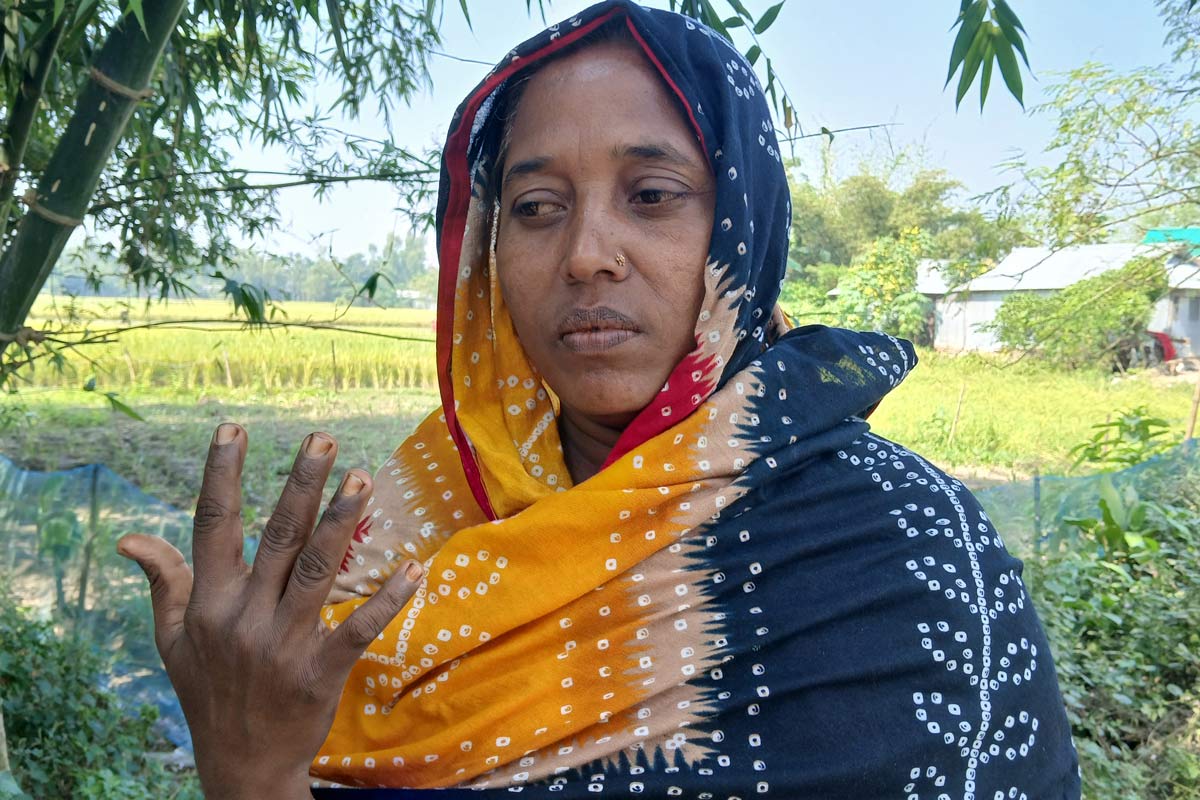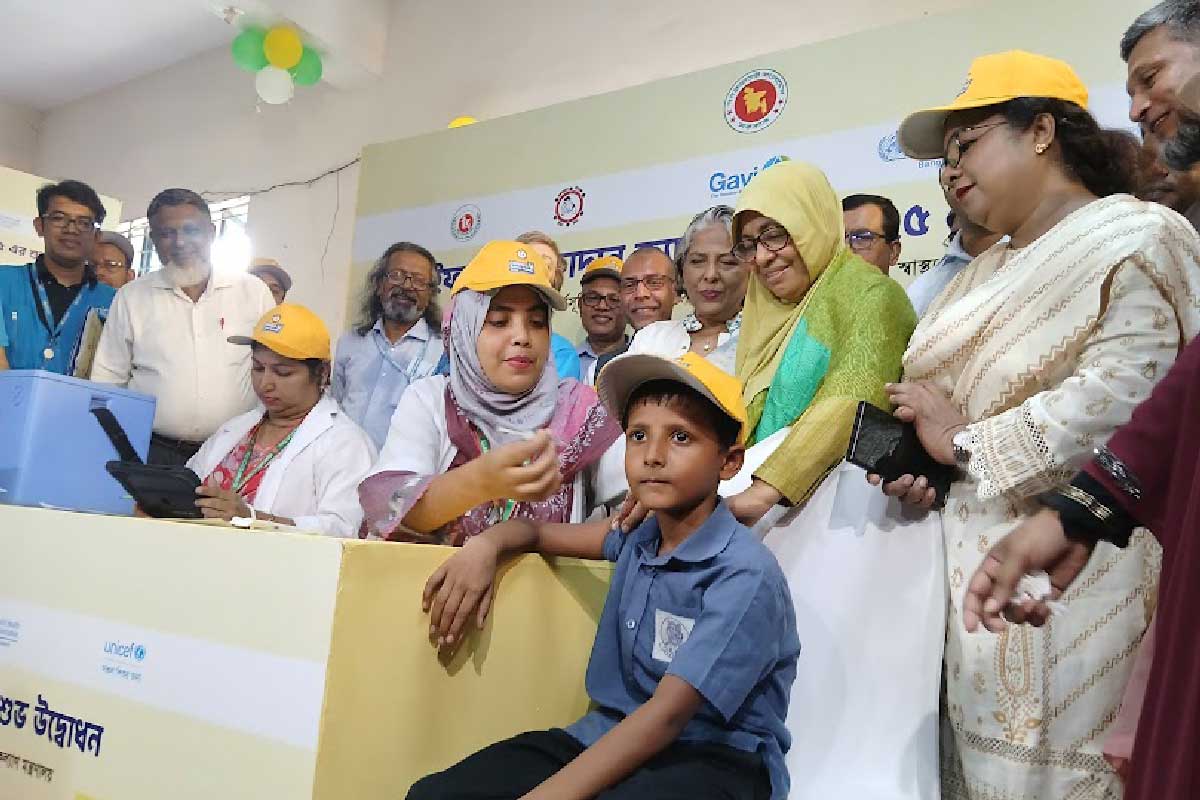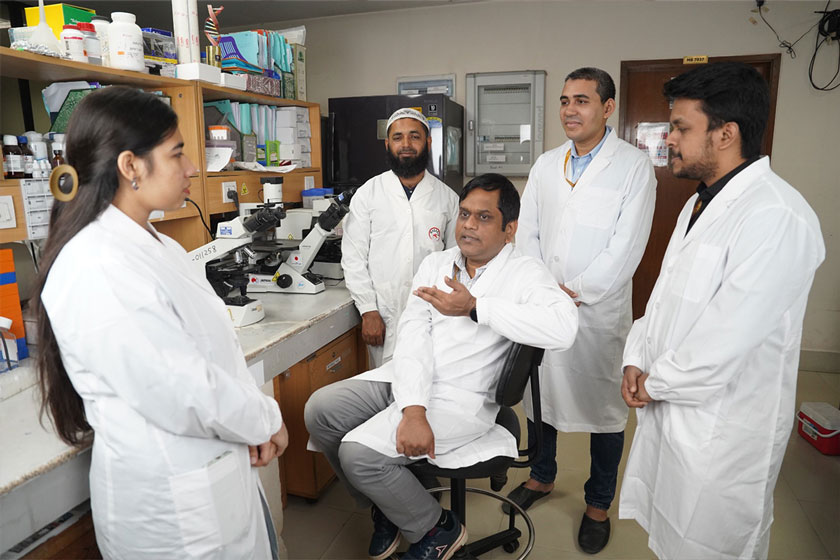“World’s largest brothel” pushed into crisis by COVID-19 lockdowns, bounces back with vaccination
COVID-19 had a devastating effect on Daultadia in Bangladesh, one of the world’s largest brothels. But special inclusive vaccination drives have offered the 1,500 sex workers living here a path to immunity, and back to normalcy.
- 22 June 2023
- 6 min read
- by Mohammad Al Amin
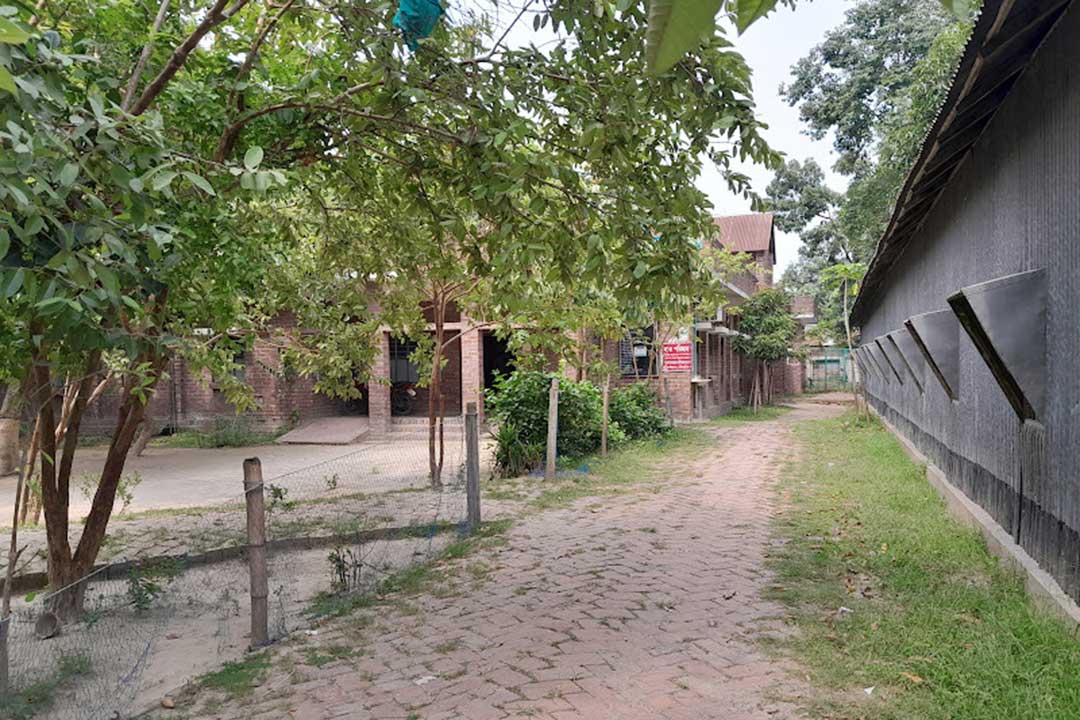
Like many other places in Bangladesh, Daulatdia brothel – known as one of the largest brothels in the world – was hard-hit by the COVID-19 pandemic. But special COVID-19 vaccination drives have offered relief to a community of sex workers who had found themselves in severe economic need after the early lockdowns.
Liza Akter, 30, a member of the Daultadia brothel, recalls the terrible predicament she and fellow sex workers faced amid the government-imposed movement restrictions that were instituted to manage the spread of the novel virus.
"At the beginning of the pandemic, we were seriously panicked about the virus transmission and its effect on human health. At the same time, our livelihood was affected as we lost our income due to no clients coming to our brothel for the lockdown. And many of us also fell sick," she recounted.
“At the beginning of the pandemic, we were seriously panicked about the virus transmission and its effect on human health. At the same time, our livelihood was affected as we lost our income due to no clients coming to our brothel for the lockdown. And many of us also fell sick.”
– Liza Akter, Daulatdia sex worker]
The Daulatdia brothel has been operating for over a century, and resembles a congested village, densely clustered with small houses, and lacking proper hygiene and sanitation systems. With an estimated 5,000 customers a day, and more than 1,500 sex workers, it's a crowded environment, making it high risk for the spread of the respiratory virus.
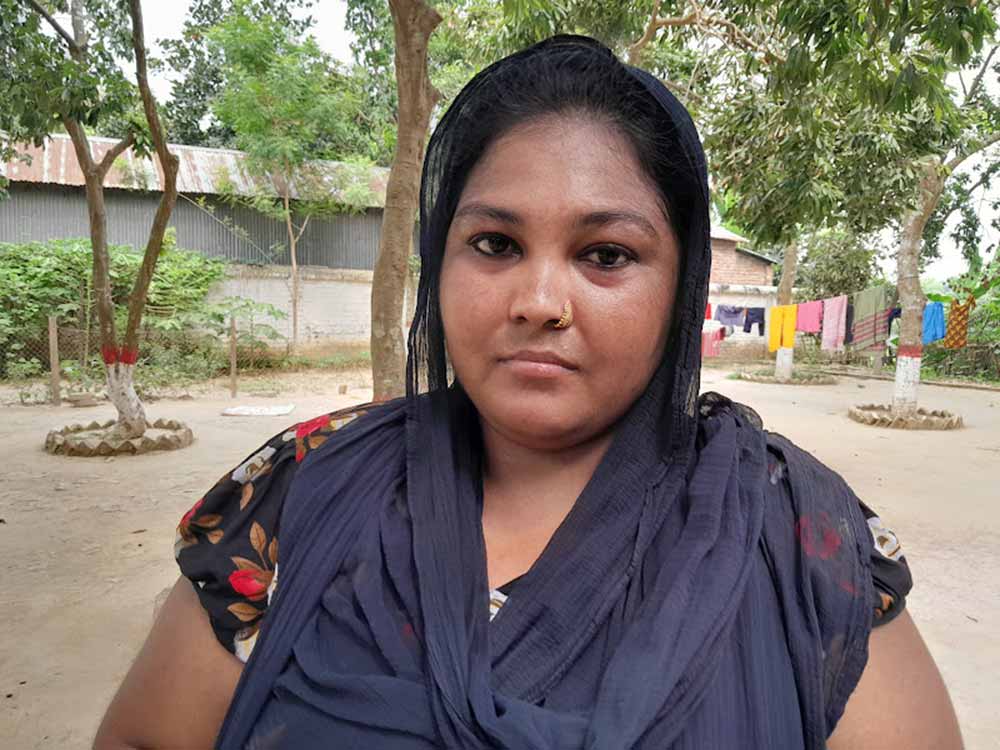
Credit: Mohammad Al Amin
But a March 2020 shutdown tipped many of the workers into crisis, and emergency appeals for food aid went out to the government almost immediately.
Since then, Akter said, sex workers of the Daulatdia brothel have managed to rid themselves of the sufferings of the pandemic through immunisation. Since the government and several helpful non-governmental organisations (NGOs) brought the COVID-19 vaccination campaign to their doorsteps, life and trade here has more or less bounced back to normal.
"Like other people of our community, I took third or booster dose of the coronavirus vaccine. At the same time, we got food aid and health services from the initiatives of the government and NGOs during the pandemic. Now the situation is totally normal in this brothel, and we are leading a normal life," she added.
But conducting the vaccination drive in the brothel was not easy. Across Bangladesh, the government extended vaccination to eligible populations via online registration, using the National Identity Card (NID card) system. Many of the sex workers and their children, however, have no NID card.
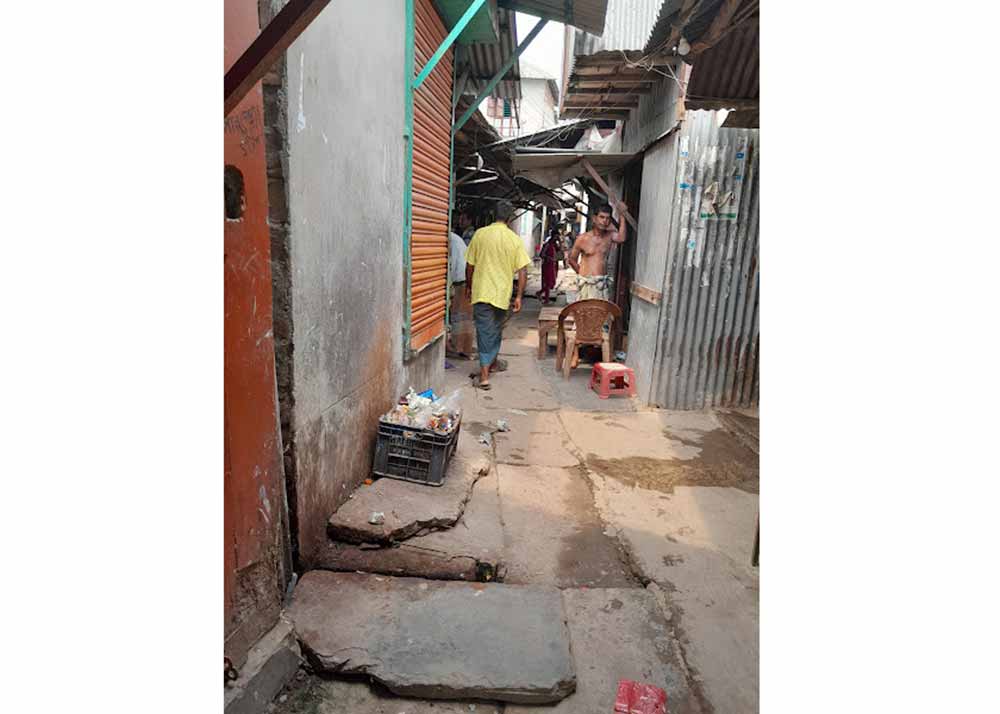
Credit: Mohammad Al Amin
Furthermore, in the early days of Bangladesh's COVID-19 vaccine roll-out, it was geographically tough to access vaccination from Daulatdia, as the government-designated vaccine centres were situated far away from the remote area that is home to the brothel-village.
S. M. Abdullah-Al-Murad, Program Manager (EPI) of Directorate General of Health Services (DGHS) said,"We arranged vaccination for people, particularly different, underprivileged communities like brothel women, without NID through line-listing system. With the help of local government units and local administration, we brought them under the vaccination through on-the-spot registration. We gave them a vaccine card to receive the vaccine."
Treasurer of Sex Workers Network Bangladesh Farida Pravin, also a community leader in the Daultadia brothel, said that in addition to the approximately 1,500 sex workers working at the brothel, there are about 450 children of sex workers.
"Though we were seriously afraid of the coronavirus infection, we got financial assistance, foods and vaccines to tackle the situation. Now most of the eligible members of the community received third or booster doses of the vaccine. However, no COVID-19 patient was detected as none of the brothel tested for the virus," she said.
Have you read?
As part of the government initiatives, the Goalanda Upazila administration, the local district sub-unit that contains Daulatdia, provided government cash incentives and food aids to the sex workers of the brothel.
Dr Farsim Tarannum Haque, Upazila Health & Family Planning Officer (UH&FPO) for Goalanda Upazila Health Complex, said during the pandemic the government ensured health services for the sex workers of the brothel through community clinics and NGOs.
"In the beginning of the nationwide vaccination campaign against coronavirus, initially around 150 sex workers were inoculated with the first dose of the jab in January 2021. Later, we administered the vaccine among the rest through setting up a temporary vaccination camp just beside the brothel, with the help of the NGOs and local administration," she said.
Dr Haque confirmed that data on COVID-19 cases and mortality in Daulatdia is not available as the Upazila health administration was not informed about cases of the virus from within the brothel.
The government official further said around 600 to 700 sex workers were inoculated in the special vaccination camp in August 2021, and the remainder of the brothel inhabitants took their jabs from designated vaccine centres in Goalanda Upazila.
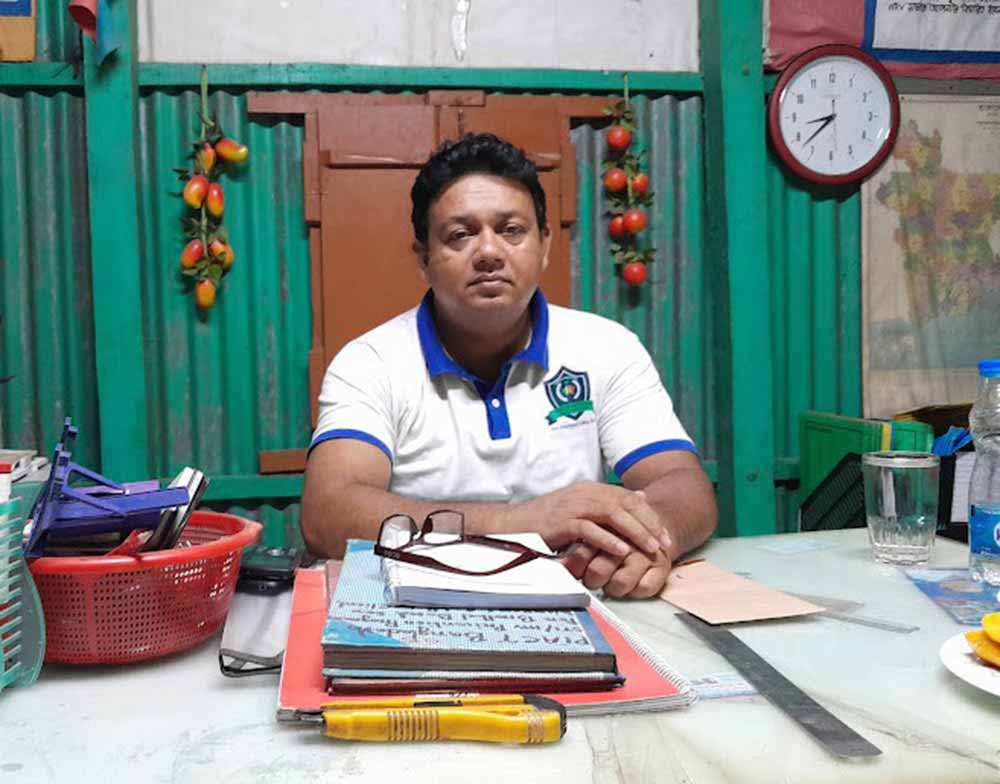
Credit: Mohammad Al Amin
Among the NGOs providing support to the brothel community, Gonoshasthaya Kendra (GK) provided health services while Mukti Mohila Samity (MMS) and Program for the Introduction and Adaptation of Contraceptive Technology (PIACT) Bangladesh worked for providing health services and various other assistances to the sex workers.
“Like other people of our community, I took third or booster dose of the coronavirus vaccine. Now the situation is totally normal in this brothel, and we are leading a normal life.”
– Liza Akter, Daulatdia sex worker]
Md Majibur Rahman Khan, Manager of PIACT Bangladesh, said they approached the local administration about setting up a vaccine campaign beside the brothel, as many of the sex workers were not interested in leaving the area to get vaccinated.
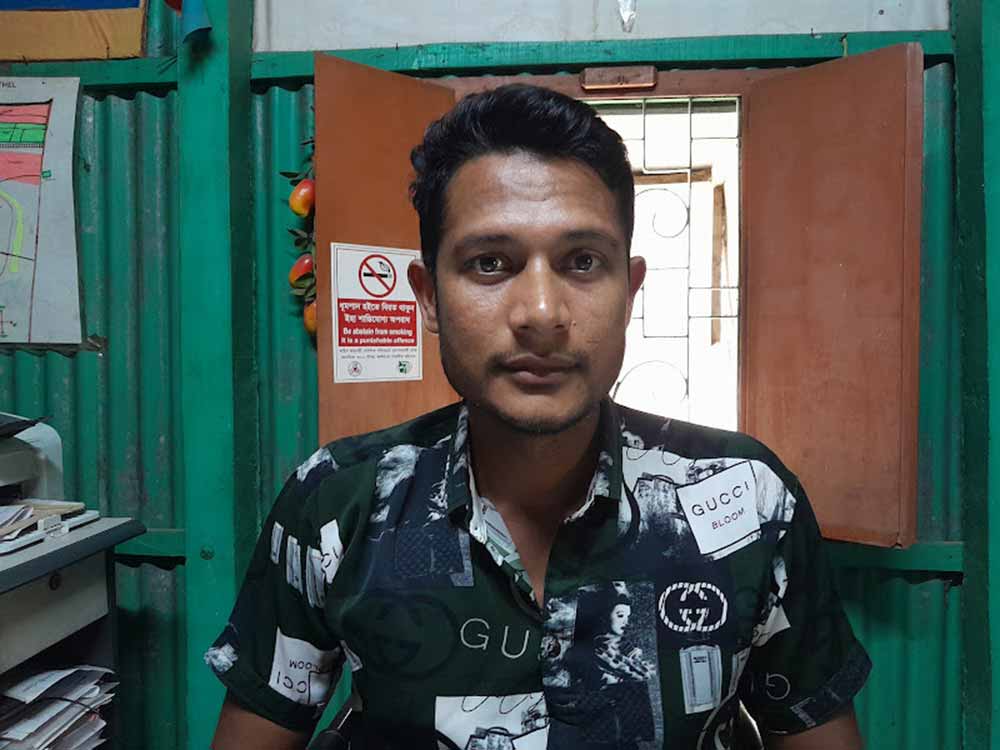
Credit: Mohammad Al Amin
Md Harunur Rashid, Paramedic at Gonoshasthaya Kendra, said COVID-19 cases were not detected among the sex workers as many sex workers came to the health centre situated beside the brothel with symptoms of COVID-19 infection, but were not interested in testING.
"However, we provided them necessary health services at our health centre during the pandemic too," he added.
Vaccinator Khadija Khatun, also a paramedic with Gonoshasthaya Kendra, said initially a few sex workers were afraid of receiving the vaccine. Following an awareness programme conducted by the NGOs, however, the brothel inhabitants were keen to take the vaccine.
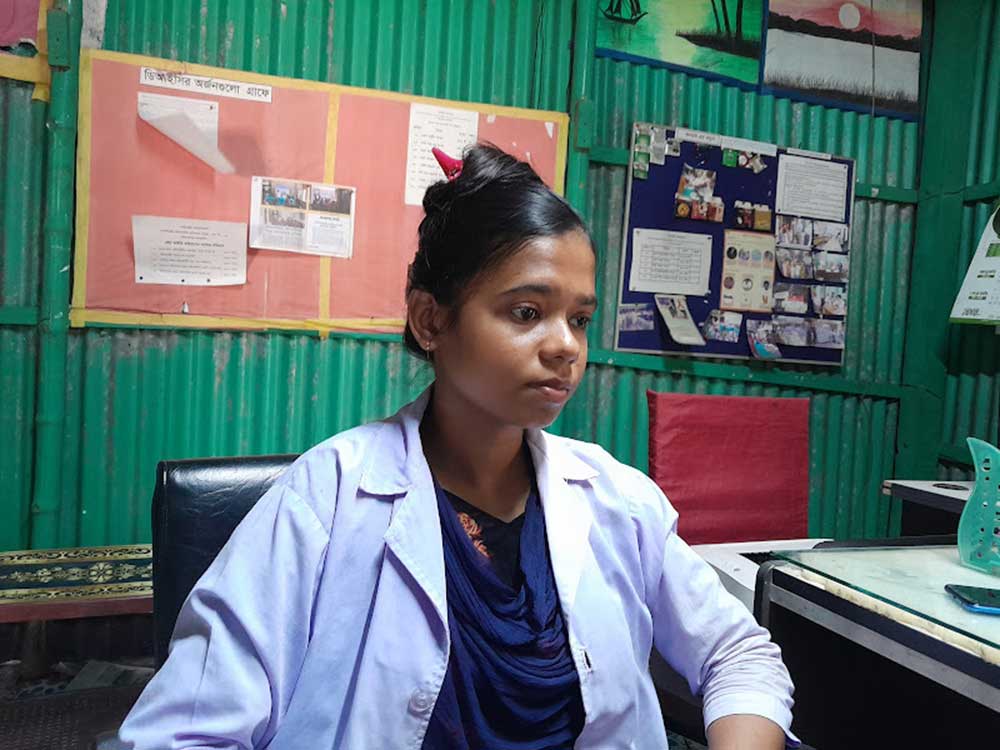
Credit: Mohammad Al Amin
Describing their services, she said"during the movement restriction and [period of] high transmission of the coronavirus across the country, we went inside the brothel to provide health services, if necessary. At the same time, the sick brothel inhabitants also came to our health centre to take treatment."
According to the DGHS official data, 20,40,610 COVID-19 patients and 29,452 deaths were reported in Bangladesh since after first detection of the infection case on 8 March 2020 till 12 June 2023. Of the total, 11,920 COVID-19 patients and 231 deaths were reported in Rajbari district till 12 June.
